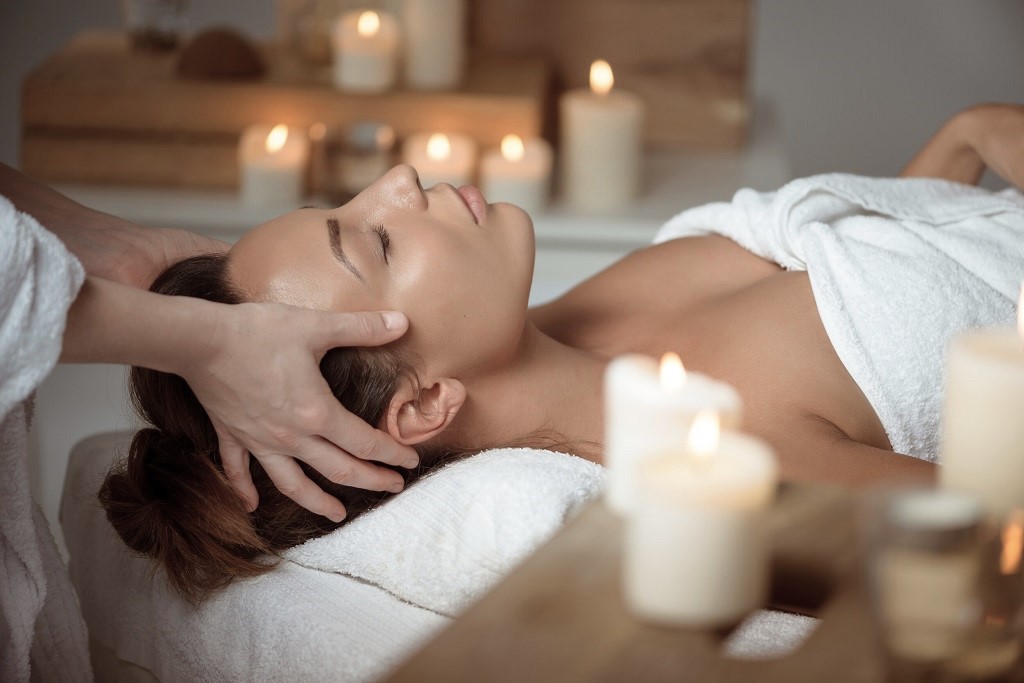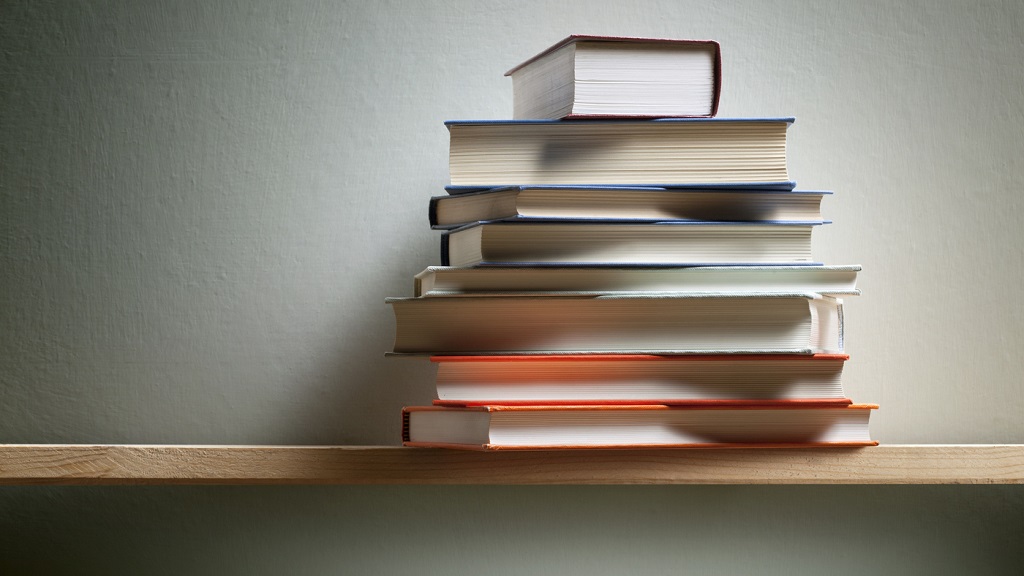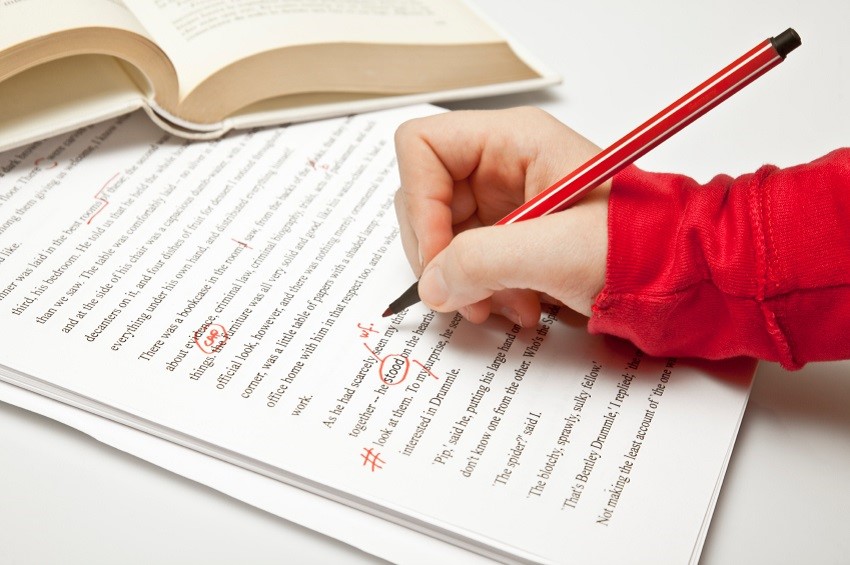
Stress-free Success: How Spa Rituals Contribute to Effective English Studying
As an English student, I know how stressful studying for exams and writing essays can be. The constant pressure to perform well academically can take a toll. That’s why I’ve started incorporating relaxing spa rituals into my study routine – and it’s made a huge difference!
In this article, I’ll discuss how small self-care actions like bathing, diffusing essential oils, and sipping herbal tea have helped me study English more effectively. Learn my tips for combining spa-like pampering with productive study sessions. We suggest visiting laser hair removal in Manhattan.
Why Studying English Can Be Stressful
Learning a new language presents all sorts of challenges. As an English student, I constantly grapple with rigid grammar rules, endless vocabulary words, and the pressure to speak and write fluently.
Exam days are often filled with anxiety. I obsess over all the material I need to memorize, second-guess my essay ideas, and worry I’ll freeze up during the test. My mind races with stressful thoughts:
- What if I mix up verb tenses again?
- I haven’t reviewed idioms enough – I know they’ll come up on the test.
- What if I completely blank when it’s time to write my in-class essay?
All this stress affects my ability to think clearly and retrieve information. It’s hard to do my best work when I’m overwhelmed with worry.
In conversation classes, I psych myself out, too. I know speaking skillfully in another language doesn’t come easily, but I tend to get tongue-tied, fearing I’ll stumble over my words. The harder I try, the more chaotic my speaking becomes. All this pressure saps my confidence.
Feeling stressed doesn’t put me in the best headspace for tackling English lessons. That’s why I’ve started weaving relaxing spa rituals into my study routine. Visit the wax centers in midtown Manhattan to get the best care for waxing.
How Spa Pampering Reduces Stress
Spa treatments provide the perfect antidote to academic stress. They are getting a massage, lounging in a hot tub, or indulging in a facial, all calm the body and mind.
Research shows that spa therapies reduce cortisol, the key stress hormone. Slow, soothing activities also lower blood pressure and heart rate, helping you feel more peaceful and clear-headed.
Spa pampering also encourages mindfulness. Tuning into pleasant sensory details like soft music, aromatic oils, or warm towels brings you into the present moment. This helps interrupt spiraling “what-if” thoughts.
Though I can’t spend all day at a spa while prepping for English exams, I can recreate certain relaxing elements at home. Adding mini spa breaks to my study routine makes the work feel more manageable. Going from frantic to calm helps me absorb material better so I can confidently demonstrate my English abilities.
Here are some of my favorite ways to incorporate spa-like self-care into my study sessions:
Take Soothing Baths
Is anything more relaxing than taking a warm, bubbly bath by candlelight? Drawing a bath is like creating my private spa oasis – a simple way to press pause on study stress.
I like to add Epsom salts or a few drops of lavender essential oil to my bath. These extras infuse the water with relaxing properties. The heat helps soothe muscle tension, so I feel less physically uptight. Closing my eyes and breathing in the calming aromas melts away academic anxiety.
I don’t bring study materials into my bath sanctuary – this time, it is just for me. After 30 minutes of soaking, I feel refreshed and ready to review English material with less stress clouding my thinking.
Diffuse Uplifting Scents
One of my favorite parts of spa visits is enjoying relaxing aromatherapy. The right scents can instantly lift your mood and reduce stress. I bring this experience home by diffusing essential oils while I study.
My go-to stress-busting oils include:
- Lemon – This citrusy scent boosts energy and concentration. It helps me feel more focused.
- Lavender – Floral lavender has calming properties that remove exam anxiety.
- Peppermint – Cool, minty aromas invigorate my mind so I can think clearly.
I put a few drops of these oils in my diffuser and let the scent waft through my study space. Taking a break to deeply inhale the aroma gives my brain a chance to reset, and I return to my textbooks feeling less overwhelmed.
Sip Stress-Relieving Teas
Staying hydrated is key to effective studying, and sipping tea is much more relaxing than gulping water. Herbal teas can also have soothing properties, making them perfect study aids.
Some calming tea ingredients I keep on hand are:
- Chamomile – This daisy-like flower has a gentle sedative effect to melt away worries.
- Valerian root – Often used as a sleep aid, valerian promotes relaxation.
- Lemon balm – Mildly uplifting lemon balm eases anxiety and irritability.
I like to brew a customized relaxation tea by combining herbs like these. As I review English vocabulary lists or outline essays, I periodically take a break to savor my tea slowly. The comforting warmth and aromas help me feel peaceful and clear-headed.
Apply Compresses to Pressure Points
I also bring spa therapies into my home by looking up acupressure techniques. Applying gentle pressure to specific points can relieve muscle tension, improve circulation, and induce calm.
One easy technique is using a warm compress on reflexology zones. I soak a towel in warm water, wring it out, and apply it to target areas like:
- Temples – Place the cloth over both sides of your head near the hairline.
- Forehead – Position the towel horizontally across your forehead.
- Back of neck – Drape the warm towel across the top of your spine.
I’ll hold the compress in place for 5 minutes as I sit quietly with my eyes closed. The warmth loosens up tight muscles that come from hunching over textbooks. And taking a meditative pause revives my energy so I can study productively for hours.
Listen to Nature Soundscapes
Walking through serene nature settings is a typical spa activity. I like bringing those peaceful feelings into my study space by listening to recordings of nature sounds.
Hearing flowing streams, gentle rain showers, or tropical beaches takes me out of my stress headspace. I’ll wear noise-canceling headphones and absorb the soothing audio for 10 minutes as I take a mindfulness break from academics.
You can find an array of free nature sound recordings on YouTube or apps. Listening helps slow my racing mind, transporting me to a relaxing oasis, so I feel ready to tackle English material again.
Get a Massage
Of course, nothing compares to the real deal! When I’m able, I book a Swedish or deep tissue massage at a local spa. Laying on the table while the massage therapist works out knots and sore spots in my shoulders, neck, and back feels fantastic.
This touch therapy eases both physical and mental tension. Letting my mind drift as my muscles relax helps me feel centered again after long days of intense studying.
Ideally, I’ll schedule my massage appointment the day before a big English exam. That gives my mind plenty of time to benefit from the relaxation boost as I review last-minute material. I retain information better when I’m not stressed to the max.
Although I can’t get a professional massage as often as I’d like, even giving myself a short hand and foot massage helps release stress before diving back into studying.
Target Tension Zones
In just a few minutes, I can knead out tightness in common spots like:
Hands – Massage your palm and each finger from base to tip.
Feet – Roll a tennis ball under the arch and over the tops of your feet.
Shoulders – Hunch your shoulders toward your ears, hold for 5 seconds, then release. Repeat a few times.
Scalp – Use your fingertips to massage your head gently in circular motions.
These quick self-massages are simple while taking short breaks between study sessions. Releasing muscle tension helps me feel more relaxed so I can absorb challenging English material without getting overwhelmed.
Why Spa Rituals Make Studying More Effective
Now that I’ve integrated little spa-like pampering breaks into my daily study routine, I can learn and retain English material much better. Here’s why self-care helps boost my academic performance:
1. Improves focus and concentration
When I’m stressed about an upcoming English exam, my mind races, and staying focused is hard. Thoughts bounce all over, making it tough to memorize vectors and analyze literaanalyzees.
Taking a short spa break, like sniffing invigorating essential oils, helps center my scattered brain. By clearing away some of the anxious clutter, I can concentrate more intently on the task. I absorb and comprehend material better without constant stress distracting me.
2. Boosts retention of information
Trying to cram English facts and rules into your brain right before an exam is far from ideal. Remembering all that information is complex when you’re in a frenzied, anxious state.
My spa study breaks curb some of that frantic energy. The relaxing rituals help slow my racing thoughts. With a calm mindset, I can steadily tackle study material more mindfully. This helps me digest and retain the information without so much mental strain.
3. Improves cognitive function
Stress and fatigue wear down your cognitive abilities over time. Prolonged anxiety muddles your thinking, memory, and capacity to learn. All the relaxing spa elements like soothing scents, warm baths, and massage help recharge my mental sharpness.
Taking short, mindful breaks allows my brain to reset and recover. Instead of feeling burnt out, incorporating mini spa escapes helps me feel mentally energized. With refreshed cognitive function, I’m ready to actively study English effectively.
4. Boosts creativity and problem-solving
The exams and essays I face as an English student require a lot of creativity and complex analysis. Formulating unique ideas and making insightful connections is hard when frazzled and tense.
But after indulging in a peaceful spa-like activity like listening to calming nature sounds, I feel my inner muse reawakening. A relaxed state of mind opens me up to more innovative ideas. Moving forward with less inner turmoil helps me brainstorm essay topics and angles much more creatively.
5. Lessens language anxiety
For many people learning English, speaking fears sabotage their progress. Nerves cause the mind to go blank when you need to converse, and all that self-consciousness is detrimental.
My spa-inspired study breaks lessen this type of language performance anxiety. The English flows more naturally when I’m not so stressed about pronouncing every word perfectly. For instance, I speak up confidently in class after relaxing in an aromatherapy bath. The calmer I feel, the better I can demonstrate my conversational skills.
Spa-Inspired Study Tips
If you want to try combining relaxing spa rituals with your English study routine, here are some tips to get started:
- Schedule study breaks beforehand – Block out short spa breaks on your calendar so you remember to take them. Consider setting a reminder on your phone.
- Keep spa supplies on hand – Stock up on Epsom salts, essential oils, herbal teas, and nature sound recordings. Having everything ready to go makes it easier to incorporate mini-spa sessions.
- Create a relaxing study space – Light a candle, play soft music, and diffuse calming scents in your study area. A serene environment helps you get into a peaceful headspace.
- Unplug during spa breaks – Avoid checking your phone or email during wellness timeouts. Just focus on relaxing your mind completely.
- Be consistent – Make time for these stress-busting respites every day, not just when you feel burnt out. Regular short breaks will keep you feeling refreshed.
- Try different techniques – Experiment to see which spa rituals work best for you. Switch them up to find the most effective stress relievers.
- Adjust the duration – Some people only need 5 minutes of relaxation to recharge, while others benefit from more extended 20-minute breaks. Find a suitable timeframe for your needs.
Spa-Inspired Study Schedule
To give you an idea of how you could incorporate mini spa sessions into your daily study routine, here’s a sample schedule:
- 8:00 AM – Wake up, drink lemon water
- 8:30 AM – Diffuse uplifting essential oil while reviewing flashcards
- 10:00 AM – 15-minute bath with Epsom salts
- 10:30 AM – Sip stress-relieving tea while reading a textbook
- Noon – Listen to nature sounds during a quick lunch
- 1:00 PM – Study vocabulary while diffusing lavender oil
- 2:30 PM – 10-minute meditation break
- 3:00 PM – Brainstorm essay topic while soaking feet in warm water
- 5:00 PM – Take a walk outdoors to refresh your mind
- 7:00 PM – Enjoy herbal tea during a study session
- 9:00 PM – Wind down routine – massage, stretching, calming music
Customize your schedule by mixing small spa-inspired breaks that appeal to you throughout your day. Take time for extended mindful activities, like exercise, music, or hobbies.
Balancing periods of focused studying with frequent peaceful moments will help boost your learning and reduce anxiety. Don’t wait until you’re completely burnt out to take a break – be proactive with relaxing self-care!
Conclusion: Blend Productivity with Pampering
As an English student, I know the demands of mastering a new language can sometimes feel overwhelming. But incorporating mini spa-inspired rituals throughout my day has been a game-changer.
Taking baths, sipping tea, and trying other stress-relieving techniques help clear my head, boost focus, and improve cognitive function. Studying feels more doable and enjoyable without constant anxiety clouding my mind.
The soothing spa breaks curb my stress levels so I can truly absorb the material. I walk into exams with confidence instead of panic, and my speaking skills flourish when I’m not self-conscious and tense.
So, don’t neglect self-care if you want to excel in your English studies! Be sure to blend some relaxing rewards in with the hard work. Taking study breaks to calm your mind will help you learn faster and demonstrate your abilities when it matters most.
With the right balance of productivity and pampering, you’ll be on your way to mastering English stress-free. Now relax – you deserve it!
Frequently Asked Questions
1. Which essential oils are most relaxing?
The best essential oils for inducing relaxation are lavender, bergamot, clary sage, chamomile, sandalwood, and ylang ylang. Their calming aromas can reduce anxiety and stress levels. Diffusing these scents during study sessions helps promote clarity and focus.
2. How long should I take a study break?
The ideal study break length is usually around 5-15 minutes. This provides enough time to relax your mind without losing focus or momentum with your work. For extended spa rituals like baths, aim for 20-30 minutes, so you fully recharge.
3. When should I schedule study breaks?
Plan study breaks proactively rather than waiting until you feel burnt out. Take short pauses every 45-60 minutes to clear your head. Also, incorporate mini-breaks when switching subjects or tasks to transition mindfully.
4. Are herbal teas OK to drink while studying?
Yes, most herbal teas are okay to drink while studying. Chamomile, lemon balm, peppermint, and lavender teas can aid relaxation without causing drowsiness. Check ingredients if combining herbs, and avoid sedating blends before exams requiring concentration. Stay hydrated with water, too.
5. How can I create a relaxing study space at home?
Some ideas to cultivate a peaceful home study zone include playing soft instrumentals, keeping lighting dim, decluttering your desk, using a Himalayan salt lamp, hanging inspiring nature photos, and displaying fresh flowers and plants. Creating a serene workspace helps the mind relax.





